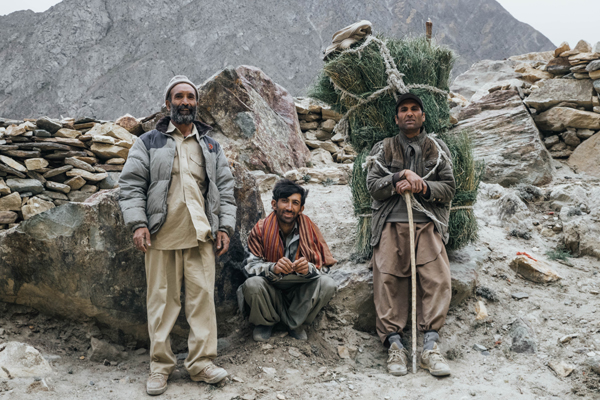What is a vision trip or a scout team?
Different organizations may use different terms—vision trip, scout team, preview, or exploratory trip—but all are essentially the same thing. A vision trip is commissioned or scout team sent for a threefold purpose, to:
- Make observations about the people (both ministry partners and nationals) and place of the potential trip.
- Participate in practical activities to better understand how and why things are done certain ways, and to better understand the tangible expression of a partner’s mission and ministry.
- Build relationships and foster trust between the senders, ministry partners, and the community as a whole.
All gathered information is to be reported back to the senders so they can more clearly understand the true needs of those they intend to serve, define healthy parameters with ministry partners, and better prepare future groups.


Is there a biblical basis for vision trips or scout teams?
In Luke 10, Jesus sent out seventy-two of His followers in groups of two before He visited each area of potential ministry. HIs objective was for them to build relationships and pray for God’s work in the region. They intentionally left all of their supplies behind, which required them to interact with and depend upon local residents and resources. This required the disciples to:
- Interact with strangers in practical ways.
- Learn how to accomplish basic tasks within the customary means of the host region.
- Better understand and relate to the people to whom they were sent in order to build relationships for the Kingdom.
Jesus utilized this strategy to first identify where His Father was at work, and then to build relationships in order to maximize the impact of His ministry.
Numbers 13–14 is another biblical passage providing a foundation for sending a scout team. Moses sent twelve spies into Canaan to gather information on the people and land and report back to him. We highlight this passage during Session 2: Cultural Research of our training curriculum.
What should a scout team look like?
While each vision trip is varied in duration, scope, and activities, there are standard principles to which each scout team should adhere. Scout teams should be:
- Small. The team should able to fit in one car (including your host), perhaps 2–3 people (we prefer a small group over a single traveler for purposes of brainstorming, collaboration, and security).
- Leaders. Whether staff or volunteers, the scout team should be composed of those involved in the decision-making and communication process back home. If possible, one scout team member should lead (or travel with) the ensuing team.
- Experienced. These people should be seasoned in both ministry and travel, knowing what things to look for and what questions to ask. It is not ideal to send novices on vision trips.
- Humble. The scout team isn’t traveling to the host country to push an agenda or steal the show. They are observers, thinkers, communicators (speakers as well as listeners), and servants.


What should a scout team look for?
Scout teams want to get a look at all aspects of the host culture. This may seem daunting, but by breaking it down into a few broad categories, the task will become much more manageable.
Here are some helpful questions to ask as you evaluate your host culture:
- What are the basic demographics of the community? Is it full of young families or primarily elderly people? Is there a university or college nearby? Do people live in the community their whole lives, or do they eventually move away?
- What is the general religious climate of the community? Identify the places of worship and the general “schedule” for their practitioners. Is attending religious services a social expectation, or is attendance only valued by a minority of the population? Do most members of the community adhere to one religious system? Do members of different faiths live harmoniously or in conflict with one another?
- What historical and cultural events have shaped their worldview? In the United States, we take a linear view of history; many other parts of the world remember history not by what occurred most recently, but by what has impacted their lives and cultures most.
- What drives the economy? Is it based on agricultural or industrial development? Is it fueled by tourism or technology? Where are the businesses located—do employees commute? Who operates the businesses—are most of them family owned, or are they run by large corporations? What technology is available, and how is it used?
- What is the attitude towards outsiders—Americans/Westerners in particular? Will they respond positively to the long-term engagement of future teams, or is there a distrust of new people? What stereotypes do they have of you and your culture? If a community does not particularly like outsiders and tourists, a small team of mature, culturally sensitive adults may be more effective than a large group of high-school students on a short-term trip.
- What brings the community together? What holidays and festivals are celebrated and when? Do people routinely gather after work or school for socializing? How do people connect through sports, music, art? Scout teams should also take note of community gathering places: parks, cafés, coffee shops, markets, and pubs.
- What are the physical needs and spiritual strongholds? Poverty can express itself in several ways: unemployment, homelessness, lack of education, deficiency in healthcare, or scarcity of food and water. Do communities seem to be plagued by common addictions? What are the primary challenges to the family unit—separated/abandoned spouses, orphaned children, abuse, or criminal activity?
- Who is God connecting you to relationally? Identify locals that are open to conversation, receptive to your presence, and willing to connect you with other members of the community. How can you build upon these initial relationships?
This overview is by no means comprehensive—it’s just a starting point. The key is to gather more information than you think necessary. Vision trips and scout teams cost money, and not every church or organization sees their value. The information you gather may not seem critical in the short-term, but it can be extremely valuable in the long run. If a scout team is being mobilized, a great deal of research and communication with the field site should have already taken place so that the vision trip can be focused and efficient. This is the last step in identifying and initiating a new partnership before mobilizing short-term teams.
The relationships initiated and information gathered by a scout team will greatly benefit the pre-field preparation and on-field ministry of future teams, as well as the long-term vision of your partners on the field. Vision trips and scout teams should not be viewed as merely an added expense in an organization’s budget but, instead, as an investment in the future.

